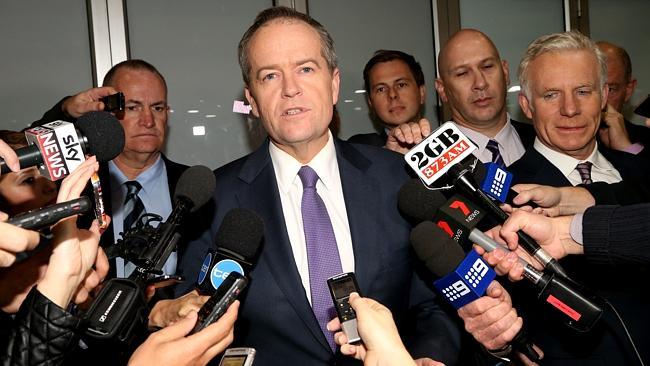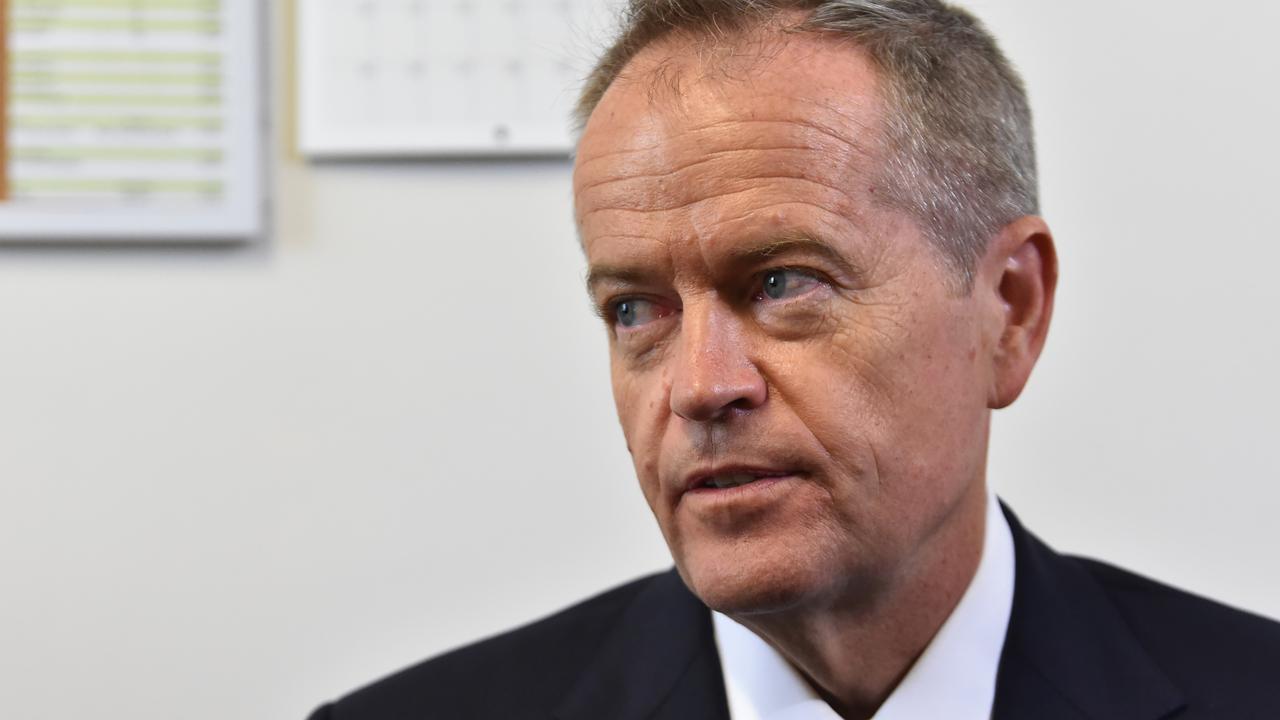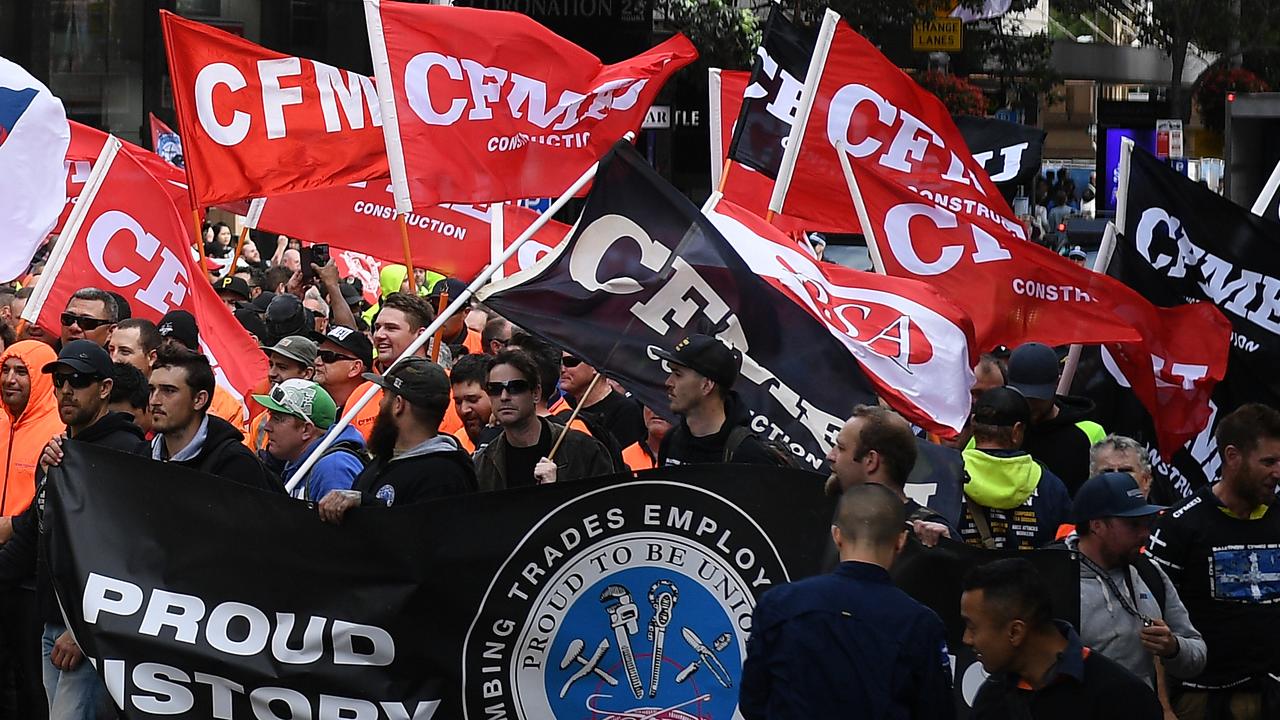Bill Shorten’s ‘conflicts’ from past deals dog his future
Bill Shorten has faced claims that AWU deals he made created a “serious conflict of interest”.

Bill Shorten has endured a second tortuous day before the royal commission into trade union corruption, facing claims that deals he made created a “serious conflict of interest” and having his “credibility as a witness” questioned by the inquiry’s head.
The Opposition Leader was repeatedly quizzed about deals he made with employers as leader of the Australian Workers Union that yielded hundreds of thousands of dollars for the union while it was negotiating enterprise agreements for workers with employers.
In the most strained moment of the day, commissioner Dyson Heydon QC questioned Mr Shorten’s capacity to provide credible answers to questions about “secret” side deals that were not part of enterprise agreements rather than seek to use his appearance to “rebut criticism”.
“I am not very troubled about that, though I can understand that you are, and it is legitimate for you to use this occasion to achieve your ends in that regard, “ Justice Heydon said.
“What I am concerned about more is your credibility as a witness.”
Under questioning from Jeremy Stoljar SC, the counsel assisting the commission, the Labor leader was asked about whether specific deals with construction company Thiess John Holland and glassmaker ACI were covered up by using “bogus” invoices.
“Is this a bogus invoice that’s claiming payment for work that was never done?” Mr Stoljar asked. Bristling at the line of questioning, Mr Shorten replied that he would “never be party to issuing any bogus invoices, full stop.”
The commission’s inquiries into AWU deals will continue this year and the commission has indicated Mr Shorten may be asked to return to give further evidence or be cross-examined as early as next month, a move that could increase political pressure on the Labor leader.
Mr Shorten was pressed over a litany of union agreements including that of Chiquita Mushrooms, which enabled the company to install 300 labour-hire workers on site to boost union membership, and that of Winslow Constructors, Huntsman Chemicals and the now-notorious deal with cleaning firm Cleanevent.
Mr Shorten’s first day at the commission was marked by claims that he had accepted a donation-in-kind from labour-hire company Unibilt when it paid for a staffer on his election campaign in 2007 — before negotiating an EBA with the company.
Yesterday the commission heard that Thiess John Holland had paid about $300,000, or “$100,000 plus GST” to the AWU annually for three years, after a 2005 deal to build Melbourne’s EastLink tollway.
According to invoices to Thiess John Holland issued by the AWU, the payments were for services the union provided, including occupational health and safety training, conferences and research.
Mr Stoljar said: “Thiess John Holland is dictating to the AWU what to put in the invoices and when to send them”.
Mr Stoljar asked Mr Shorten: “Do you accept if there were negotiations during at the same time in respect of a side deal pursuant to which $100,000 a year plus GST would be paid directly to the union that would represent a serious conflict of interest?”
Mr Stoljar told the commission the AWU had billed the company for research on back strain in the civil construction industry.
“The royal commission has spoken to the person who authorised the payment of this invoice at Thiess John Holland and his evidence was that he’s not aware of whether any such research was done, he simply received the invoice and caused it to be paid.”
Revealing payments by glassmaker ACI to the AWU of almost $500,000 between from 2003 and 2006, described as “paid education” and “professional consulting”, Mr Stoljar asked Mr Shorten if there was “again a serious conflict of interest in a circumstance in which you and your team are negotiating an EBA with ACI Glass.”
Drawing out the picture, Mr Stoljar said the EBA with ACI Glass had anticipated a “side deal” that involved direct payments to the union outside the enterprise agreement.
Mr Shorten said: “Well, no, I don’t agree with your characterisation of this,” adding: “Can it be clearer where the money is going? I appreciate your point there, but I’m confident that within about a minute I could explain it to any glassworker what exactly is happening.
“Why is it that some people assume that negotiating with a union in terms of improving the union’s ability to deliver services, that there is a conflict of interest? The truth of the matter is I don’t start my negotiations with a company assuming that we have … irreconcilable interests.”
Following a series of lengthy answers to counsel’s questions, Justice Heydon strongly cautioned Mr Shorten: “You, if I can be frank about it, have been criticised in the newspapers in the last few weeks and I think it is generally believed that you have come here in the hope that you will be able to rebut that criticism, or a lot of it.” He then warned Mr Shorten that he was concerned about his credibility as a witness.
On the Chiquita Mushrooms deal, first revealed in The Australian, Mr Shorten told the commission that a deal the AWU struck with the Melbourne company in 2004 to install 300 labour-hire workers on the site was “complex” and insisted it was designed to solve safety problems at the site.
The commission had previously heard the deal was pushed by the union to boost membership and revenue. The Australian has revealed Chiquita management already had a plan to solve the safety problems involving predominantly non-union labour.
Mr Shorten also suggested he would have known about a deal struck by the AWU’s Frank Leo to extract $4000 a month from Chiquita for so-called paid education leave. “I have no doubt that Frank might have put in a written report at some point that he had secured paid education leave,” he said.
During his earlier intervention in proceedings, Justice Heydon took Mr Shorten to task over his “non-responsive” answers.



